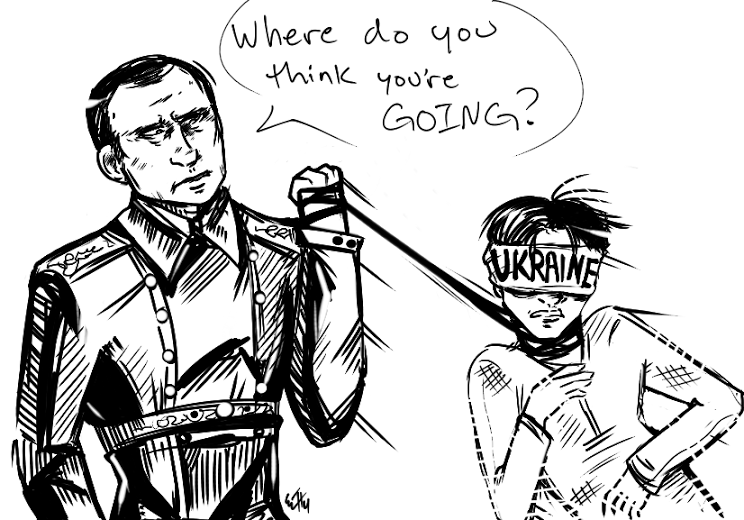Russia’s invasion of Crimea, the southernmost semi-autonomous peninsula of Ukraine has sparked an international crisis overnight. Western forces, including the G-8 leaders’ summit, have cooperatively condemned Russia’s troop movements into the region as a fundamental undermining of Ukraine’s territorial integrity.
Ukraine’s interim Prime Minister Arseniy Yatsenyuk accused Moscow of “declaring war” on Ukraine, and called the troop movements a “national disaster,” despite the fact that reportedly no shots have been fired.
President Barack Obama said in a White House press conference the United States was “deeply concerned” with the situation in the Ukraine. Secretary of State John Kerry was less mild in his assessment of the situation.
On CBS’s Face the Nation, Kerry called the troop movements a military invasion and pledged that he and other western states would ensure drastic consequences should Russia continue to keep its troops in Crimea. Specifically, Kerry stated there could ultimately be asset freezes, visa bans and disruption of the normal trade routine between the western nations and Russia, as well as business drawback on investment.
The West’s hostility toward troop movement is not only founded in political interests, as the Russian media often suggests—it is a clear violation of prior international agreements.
The Budapest Memorandum on Security Assurances, signed by the U.S., United Kingdom and the Russian Federation, stipulates that those three countries pledge to “Respect Ukrainian independence and sovereignty within its existing borders,” as well as “refrain from the threat or use of force against Ukraine,” among other provisions.
The last of Kerry’s threats, drawback on investment in Russia, seems to have already begun. Reuters reported that the Russian stock market fell 11.3 percent following the troop movement. This wiped about $60 billion from the value of the Russian businesses.
Given that the rest of the world has vowed substantial repercussions for Russia’s actions and that its market has already taken a hefty beating from the invasion, one must ask the question, “What does Russia have to gain in all of this?”
To answer that question, one must consider many historical, demographic and geopolitical factors associated with the region. For one, about 60 percent of the population in Crimea is ethnically Russian, and many Crimeans welcomed the Russian troop movements in spite of the political turmoil in the region.
A statement justifying the Russian parliament’s decision to authorize military force in all of the Ukraine (not just Crimea) issued by Putin’s office echoed this sentiment. The statement read, “Russia retains the right to protect its interests and the Russian-speaking population of those areas.”
In addition, Sevastopol, a major city in the southernmost area of Crimea, is home to Russian Black Sea Fleet as well as other key Russian naval facilities. Control of this northern port enables Russia to exert influence over the Black Sea for both economic and military purposes.
The Russians essentially rent the Sevastopol port. The pro-Russian president of Ukraine, Viktor Yanukovych, was violently forced to leave the country by the Ukrainian nationalists for allegedly making deals that benefit Russia at the expense of the Ukrainian people. Thus, it’s predictable that the integrity of Russian control of this key asset could be compromised under the new Ukrainian leadership.
There is also historical precedent for the invasion of Crimea. In 1954 Soviet leader Nikita Khrushchev gave the Crimea to the Ukraine—a move that many Russians now view as illegitimate, considering that Russia formally controlled the region for hundreds of years.
Moreover, in light of these facts, Putin is directing his forces to move into Crimea because he knows he can. Russia’s military is much more powerful than the Ukraine’s, and although there is apparently considerable backlash from greater forces such as the U.S., Putin has calculated that he has more to gain by taking the region than he has to lose by leaving it alone. This conflict isn’t yet worth larger powers intervening and starting a major war.
Therefore, suggestions that Russia should simply pack its bags and leave the region after moving troops are frankly unrealistic. The Russians knew what they were getting into when they started this. Unless there are repercussions that they couldn’t have anticipated when they decided to move troops in, the international community may need to start planning how to diplomatically combat the Russians moving farther North into other regions of the Ukraine.











